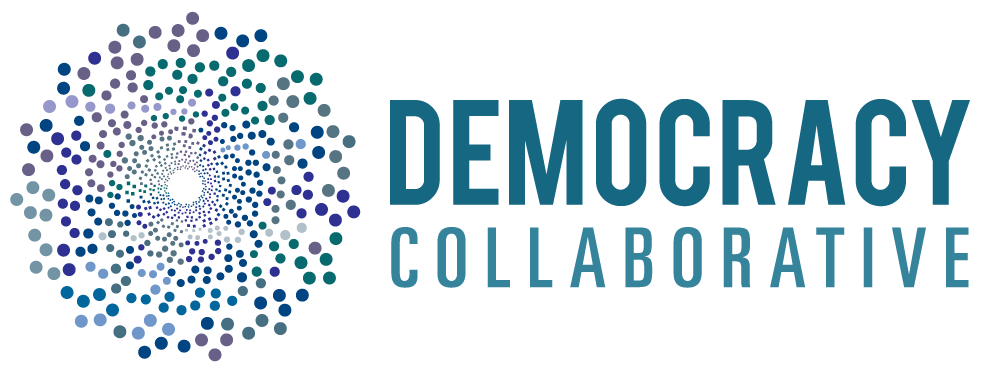The Democratic Economy

With the planet at the brink, millions living in economic anxiety, and the radical right on the rise, the following argument invites us to dare to hope—and to come together to intervene at scale, and in community. A corporate-dominated economy supported by neoliberal theories has brought us today’s extractive economy and the resulting chaos of Trumpian politics. The urgent need is to reverse the economic revolution of recent decades, catalyzed by the Koch brothers and by many, many other conservative funders. At the same time, progressive activists and thinkers have begun to develop quite new strategies that take us beyond traditional approaches. It is time for a movement that opens practical doors beyond the achievements of traditional liberal and conservative paradigms and advances a new approach to organizing our economy, beyond the stale binary choice between corporate capitalism and state socialism.
The fundaments of a new direction are already emerging across the world in a series of powerful models: state-owned banks, city-owned utilities, worker-owned firms, neighborhood-owned solar, and many, many other practical efforts that are rooted in the core value of community. These institutional designs model some of the fundamentals of the next system: a democratic, community-sustaining political economy that operates within planetary boundaries, where all can thrive—and where we take back our power from the grip of a casino economy on autopilot.
Much of our work as an organization has been dedicated to showing that this alternative paradigm is already in the making—a real, living economy being built from the bottom up in communities across the country and around the world and in powerful research and policy proposals for new national strategies and larger institutional development. This paradigm must now be moved from the margins to the mainstream, from the position of challenger to dominant model—and in short order.
Work to achieve this has been underway for several years. What is needed now is a catalytic, sustained, and organized effort to take this work to the next level—at a scale commensurate with that of the challenge. We need clarity about advancing the democratic economy through policy and institution-building—hand in hand with the powerful new movements that are working, simultaneously, in a converging direction and can position this to become a new economic paradigm for America and beyond.
In company with the developing new movements for progressive change, this work is more urgent than it has ever been before, in the face of the post-Trump era and the rising fear fed by right-wing populism across the globe, and in the looming shadow of calamitous climate change.
The central task of the next decades is to establish irreversible foundations in ideas and projects and viable policies such that a longer-term transformation of the American political-economic system becomes an inevitable reality, flowing from core shared values and institutional principles.
We have worked extensively to map the DNA of the democratic economy thereby providing a roadmap for us, together, to accomplish this task. Below are some of the elements.
Climate Justice and Energy Democracy
Our climate and energy program stands where the climate crisis meets structural issues of ownership, control, and finance. We show how a just energy transition and the transition to a democratic economy can powerfully go hand in hand. Read More >
Elements of the Democratic Economy
Neoliberalism, which seemed so dominant and unassailable in many parts of the world at the dawn of the 21st century, is in crisis. The escalating and intersecting economic, social, and ecological challenges (especially climate change) we now face have discredited, albeit not fatally or entirely, many of the principles commonly ascribed to the neoliberal model, including privatization, marketization, liberalization, and globalization. This, in turn, has opened up space for a renewed discussion about alternative economic institutions, models of ownership, and systemic arrangements. Read More >
Growing employee ownership to roughly a quarter of our future workforce will require sharing our best analysis, thinking, and strategies. It will also demand an unprecedented level of focused collaboration among both traditional leaders in the employee ownership field and nontraditional partners in order to create a broad ecosystem of support for employee ownership. Read More >
The US healthcare sector currently consumes nearly one-fifth of gross domestic product. However, this massive investment is inefficient and ineffective, producing highly inequitable outcomes for patients, communities, and the healthcare workforce. As a highly financialized sector, it contributes to growing economic inequality, itself an upstream determinant of health. What might it look like if we leveraged the incredible investments we make in healthcare to actually maximize the health and wellbeing of our communities? Read More >




